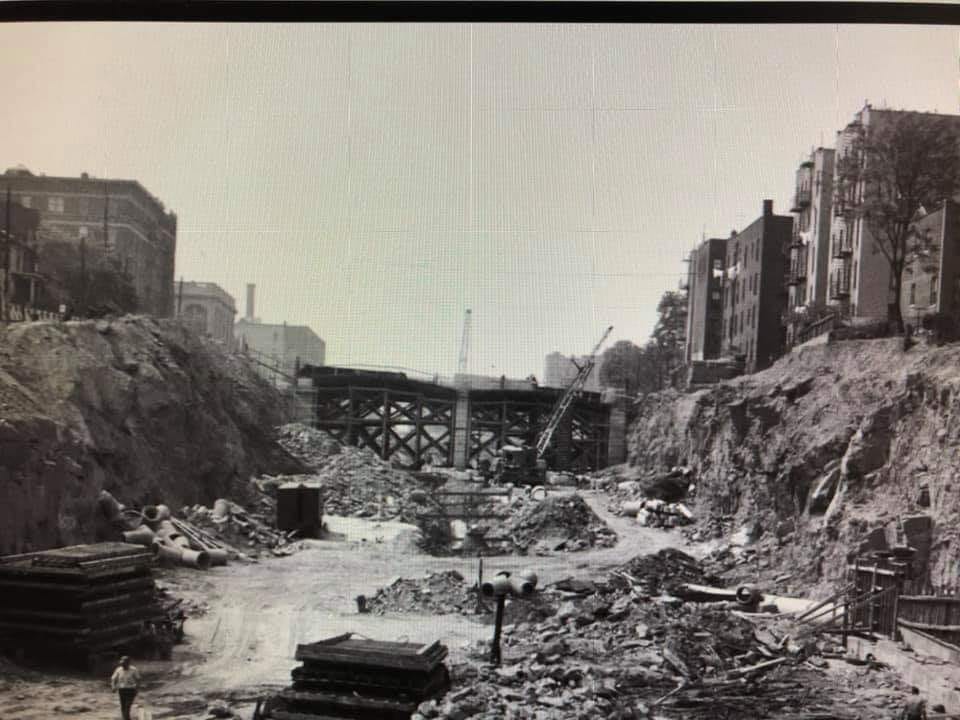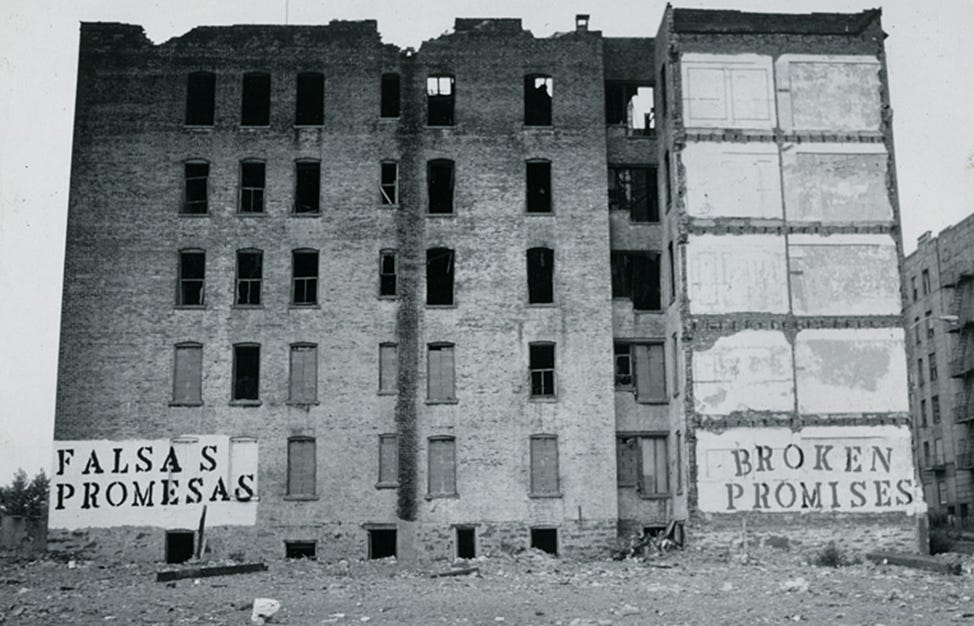Transparency First, Then Reform
Claremont’s fix starts with sunlight, not another check.
I was born long ago and far away in the East Tremont neighborhood of The Bronx, which, in the early-to-mid 1950s was a dense, modestly priced, prewar landscape of five- and six-story walk-ups organized around a lively Tremont Avenue retail spine; bakeries, kosher butchers, candy stores, and clothing shops, anchored by synagogues, churches, and civic hubs like the YMHA; Crotona Park, where President Trump held a rally in 2024, was down the block. In the early 1950s, it was predominantly white working families from mixed European backgrounds, including Jews from all over Europe and the Middle East, Irish, Germans, Italians, and Slavs. I arrived shortly thereafter, along with a growing number of other black, Puerto Rican, and Dominican working families. Then they built the Cross Bronx Expressway.
I was five when this scene was photographed, and, as you can imagine, enthralled by the giant “digging machines.” I lived two blocks to the left of the building on the left with the chimney. That structure was my grade school for K-2. Today, it is the only building in this scene still standing.
The construction of the Cross Bronx Expressway is the root cause of the destruction of the South Bronx. It was a coordinated effort by people with the most liberal progressive values, fueled by unlimited supplies of other people’s money, with the noblest of intentions. There wasn’t a nefarious gathering that decided to destroy tens of thousands of affordable housing units inhabited by working families in a city that had been in a housing crisis since 1943. It was a confluence of forces that produced unintended consequences on a monstrous scale..
By User Incantation on Wikipedia - Photograph by John Fe,kner © 1980 Donated to the Wikipedia project by the artist, CC BY-SA 3.0, https://commons.wikimedia.org/w/index.php?curid=1138072
Meanwhile, in present-day Claremont, we have a school crisis for which spending unlimited amounts of other people’s money in pursuit of the noblest goals, independent of any second-order effects and unintended consequences, constitutes social truth.
I’ve seen this movie before. It does not end well. No one is coming to save us. Sending the State out to collect money from other people on our behalf is, at best, a short-term solution to the problem of irresponsible spending.
The notion that Claremont’s education system can be fixed by simply paying more for what they do poorly does not make sense. We have to rethink things from the bottom up, starting with the immediate implementation of radical transparency.
Controlling access to information in compliance with applicable regulations is basic blocking and tackling in the business world; it should never be an excuse for not being transparent. By opening their information to public view, they can gain additional eyes on problems that seem to have befuddled them for years.
Radical transparency is a short-term, readily achievable solution. But it does not address the most fundamental question we face. Shall we fund schools or educate students?
Stevens High School offers extensive academic and extracurricular programs. The recent outpouring of citizen support for the sports programs demonstrates that a significant portion of our community is willing to vote with their dollars. Could we extend this model to the taxpayers? Can I direct my tax dollars towards trades, math, and science education?
Suggested Reading
The Power Broker: Robert Moses and the Fall of New York — Robert A. Caro (1974).
Jane Jacobs — The Death and Life of Great American Cities (1961).
South Bronx Rising: The Rise, Fall, and Resurrection of an American City — Jill Jonnes (rev. ed. 2002).




> Shall we fund schools or educate students?
There's a third alternative, which is obscured by asking the question that way.
"The purpose of tax-funded assistance for education should not be ‘to educate kids’. It should be to avoid having UNeducated kids loosed on the world as UNeducated adults."
Those are two very different things, that require very different approaches:
https://granitegrok.com/national/2025/07/underwood-its-not-about-the-kids
Also, it's not clear whether by 'we', you mean government, or society. Again, those are two very different things, which rely on very different mechanisms:
https://granitegrok.com/national/2025/06/efas-and-gfas
All of which is to say, my answer to your question is: Society, working voluntarily, should find ways to provide assistance to parents who, without such assistance, will release uneducated kids into the world.
But that doesn't really align with either of your multiple-choice answers, does it? :^D
I read Jane Jacobs with great enthusiasm in the 70’s when i was an Urban pioneer on the edge of University of Pa’s gravitational field. Read the New York Review of Books which has a great article on Robert Moses from his early days of the TVA through to his building of the West side Highway! Time and tide didn’t wait for him! Ruthless and relentless!